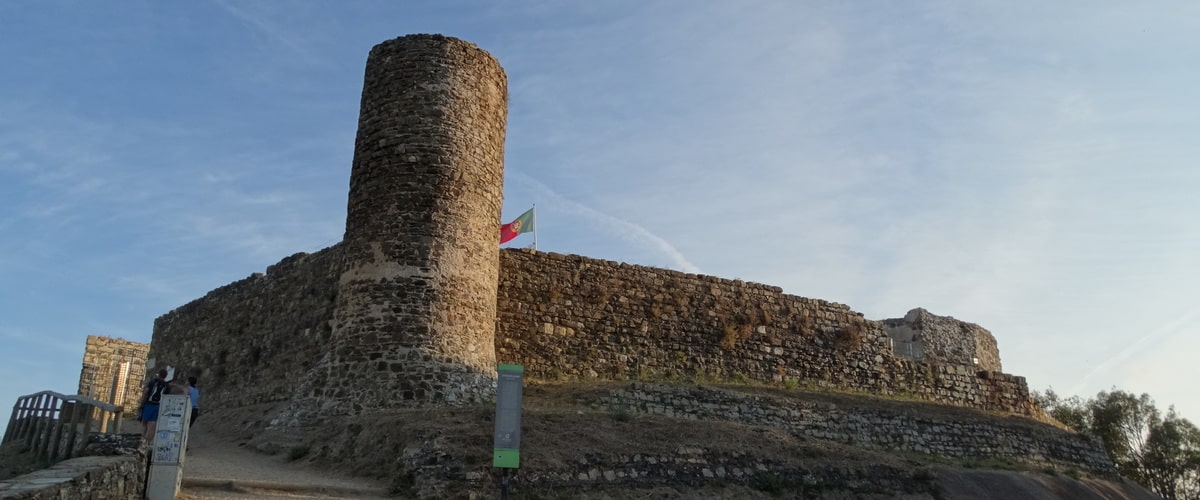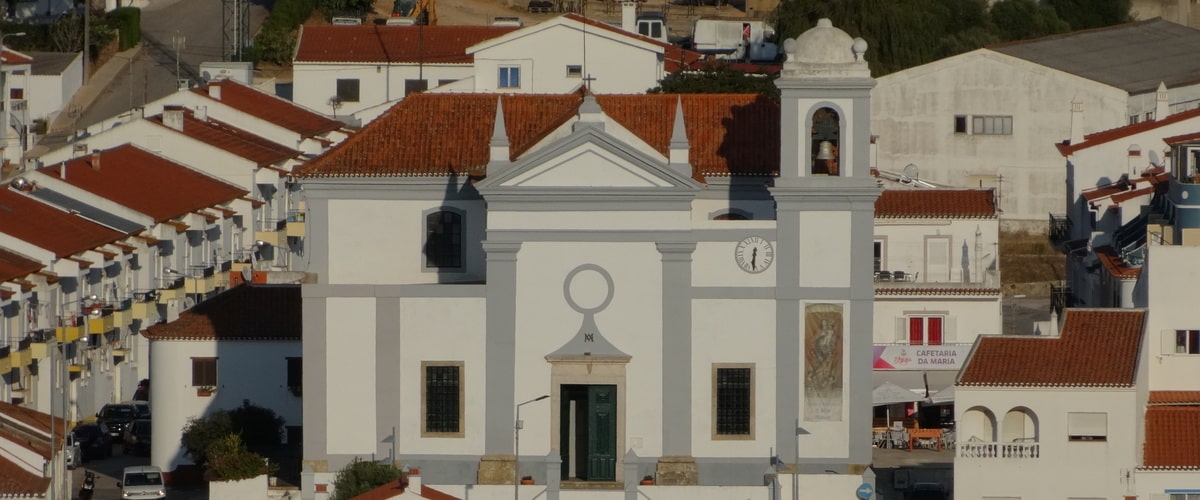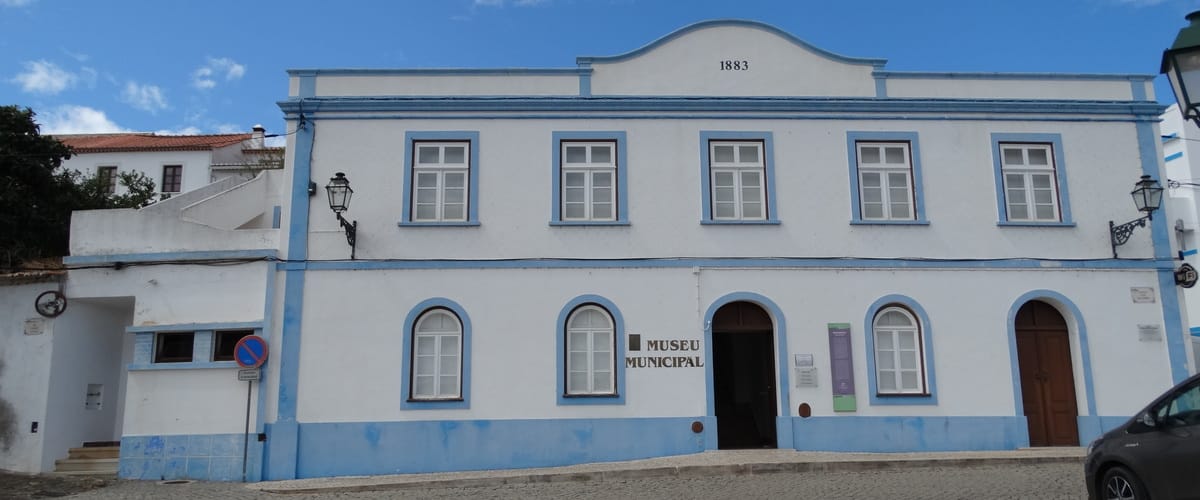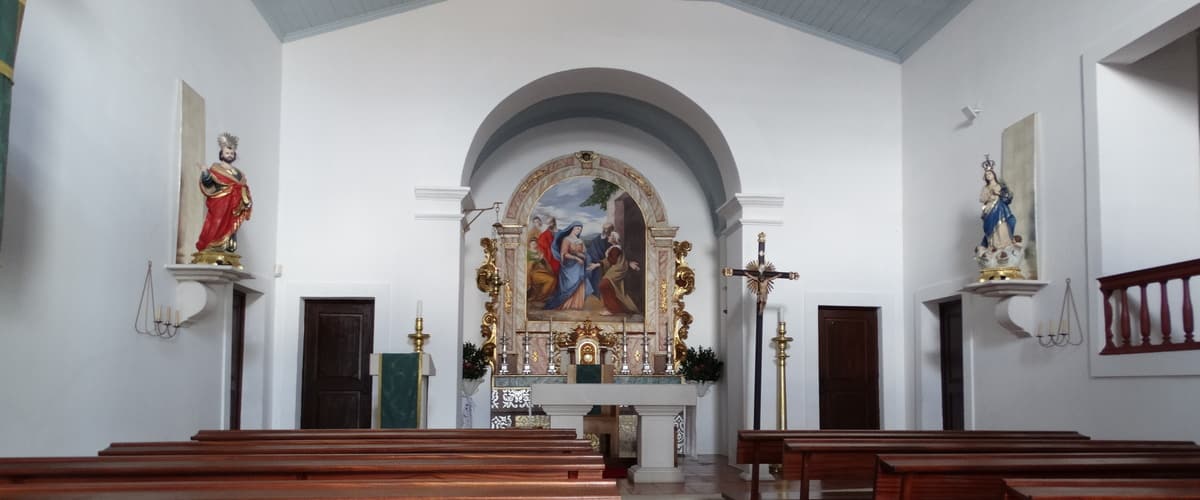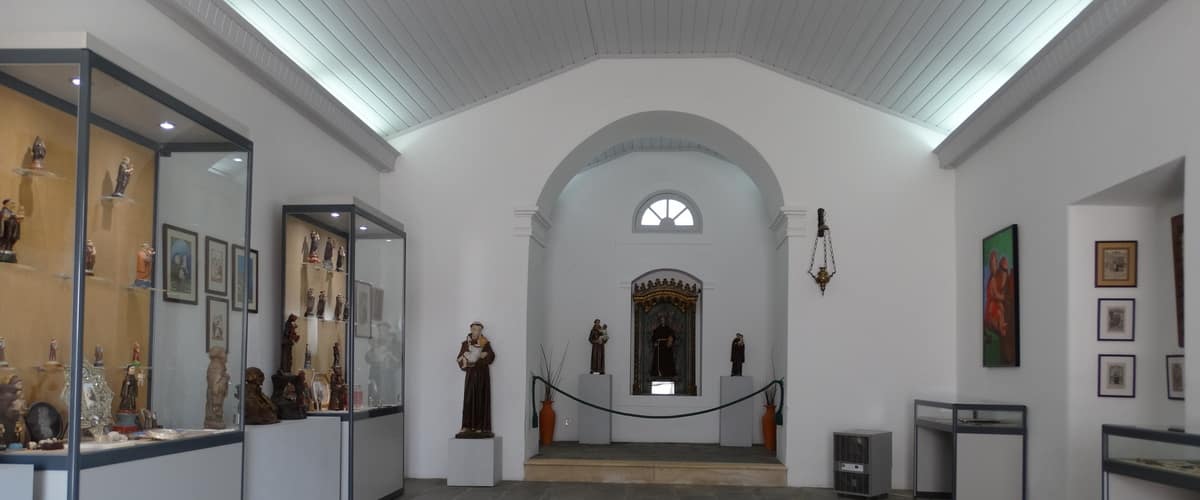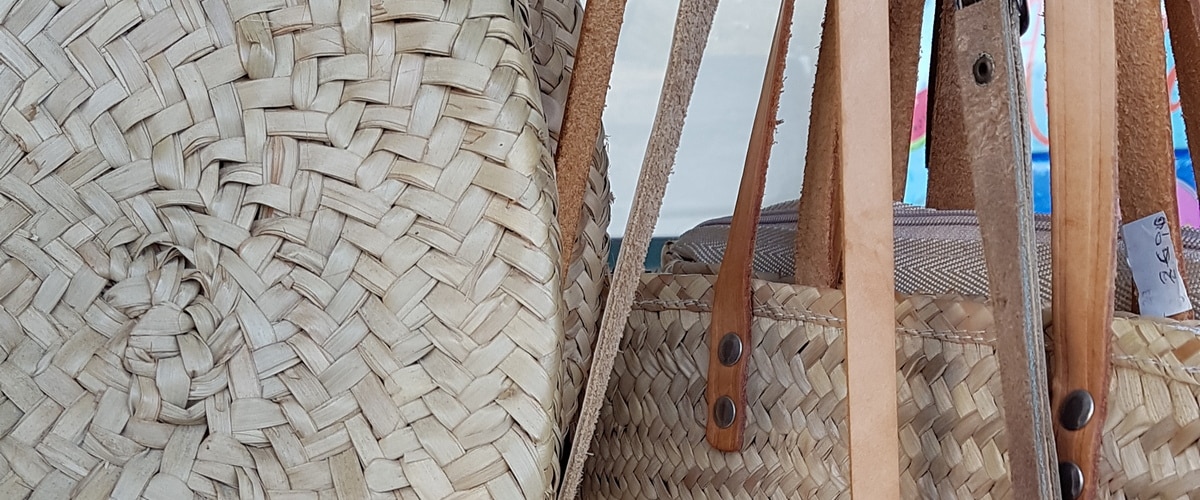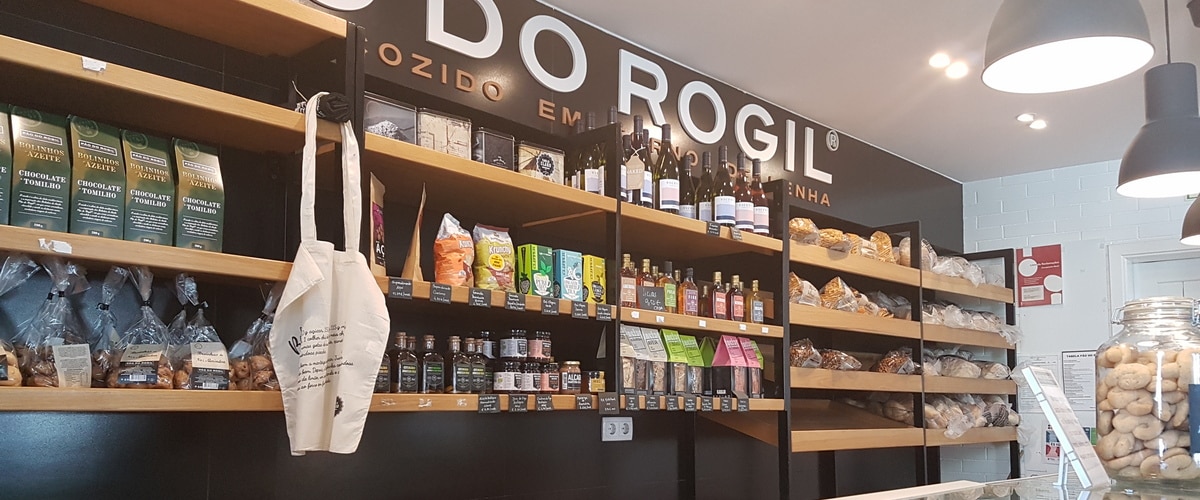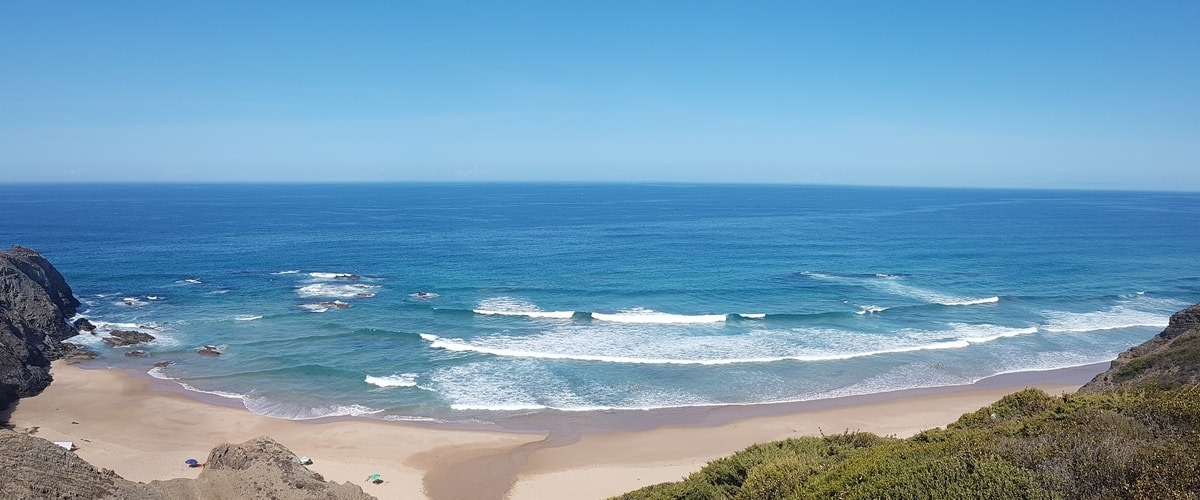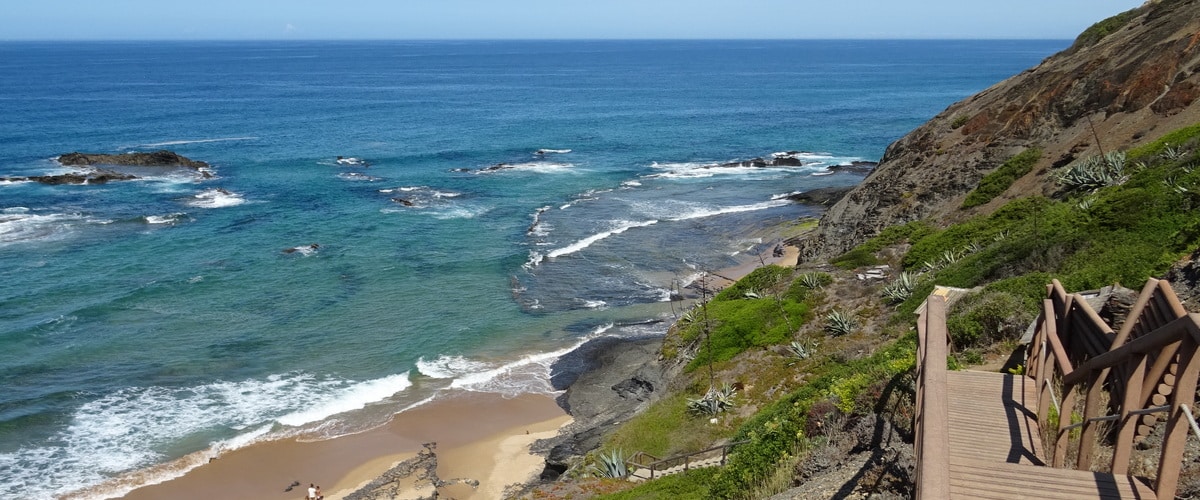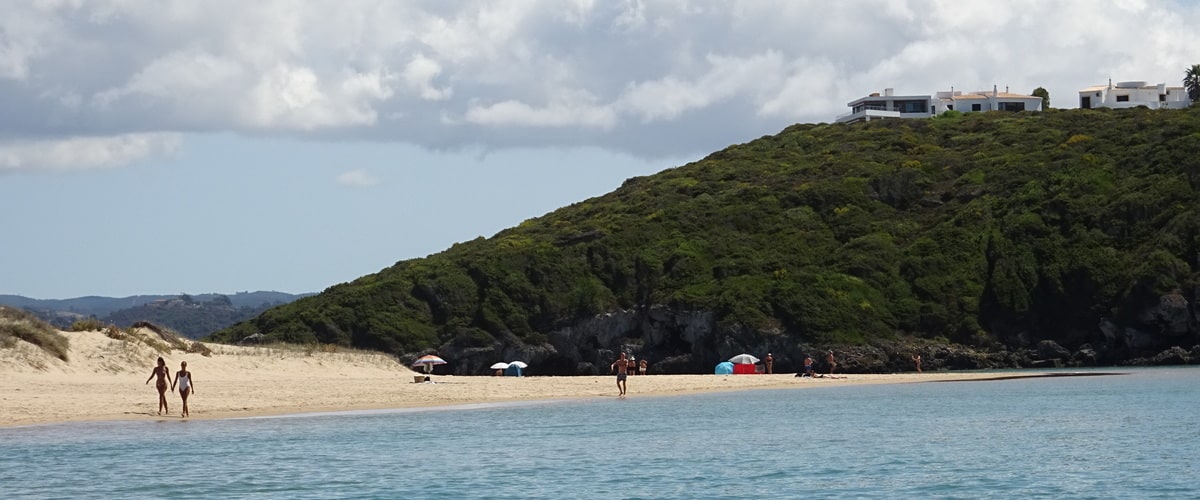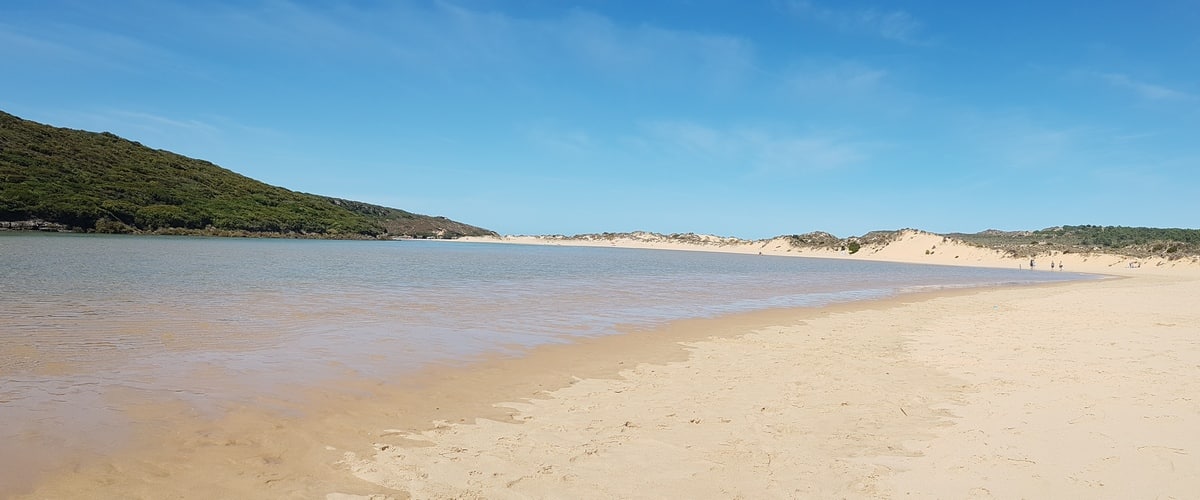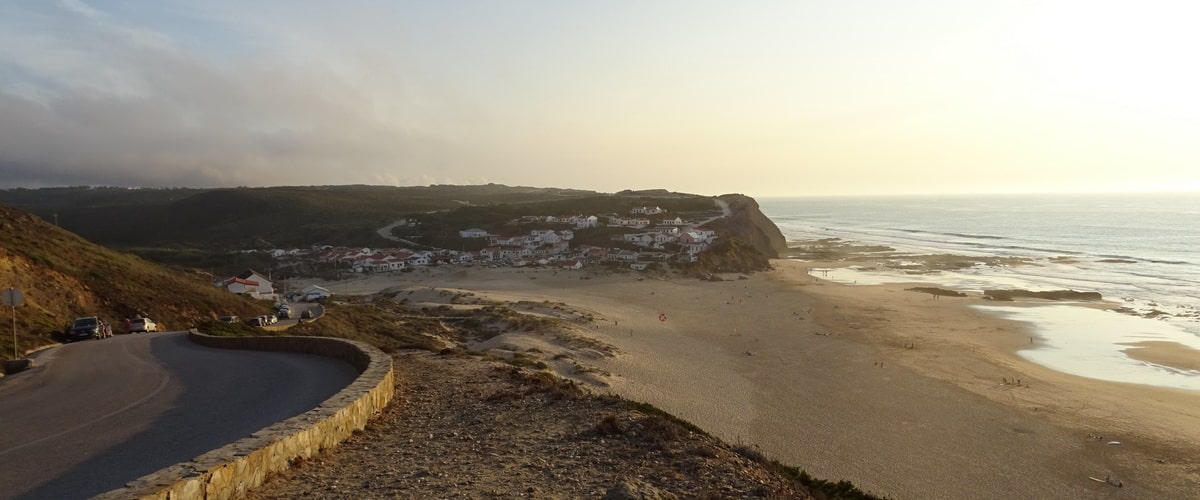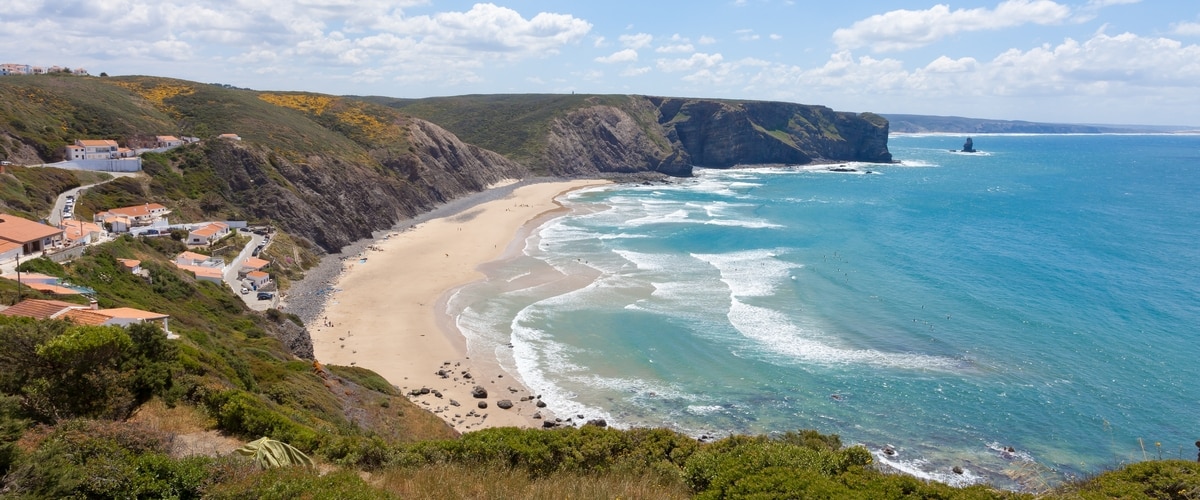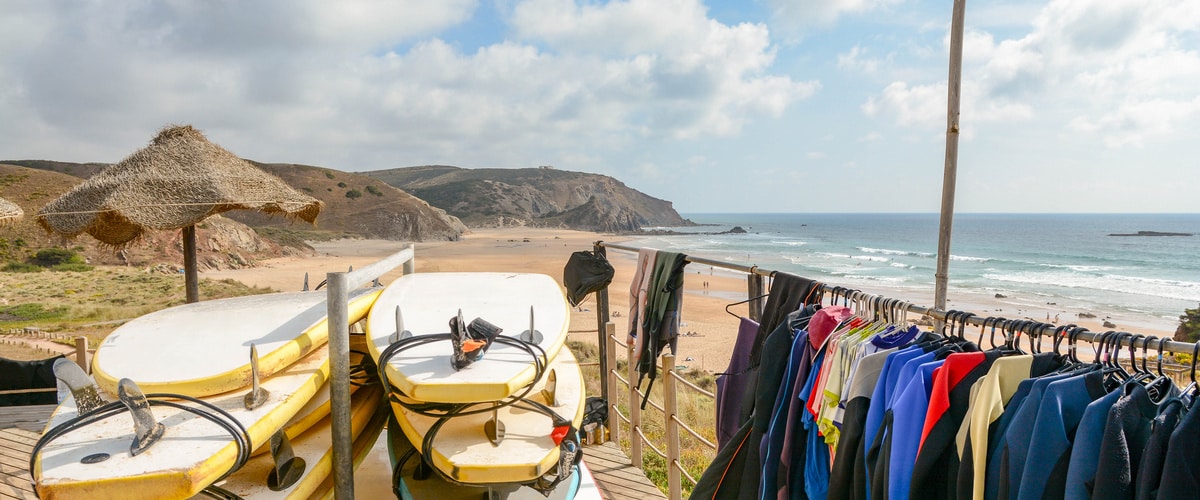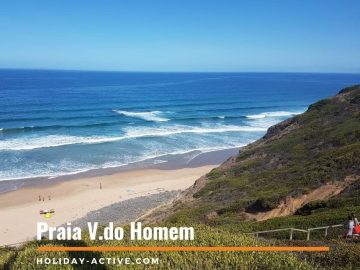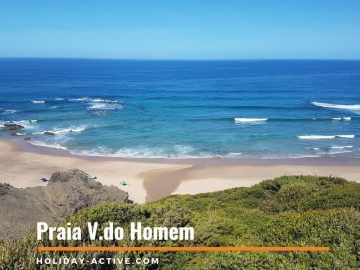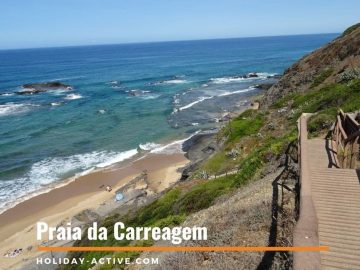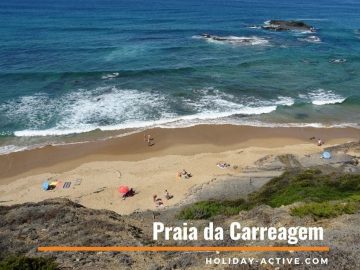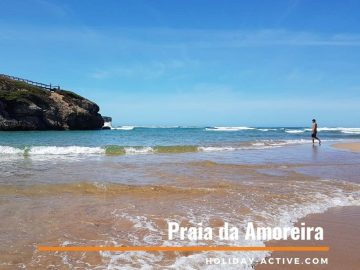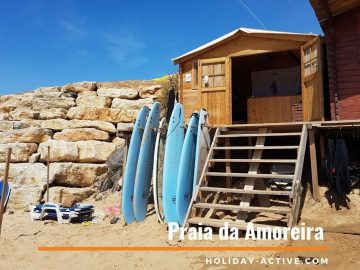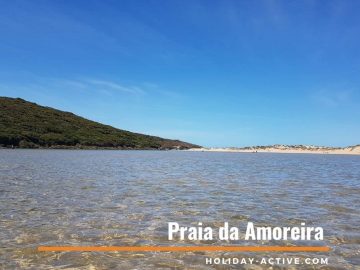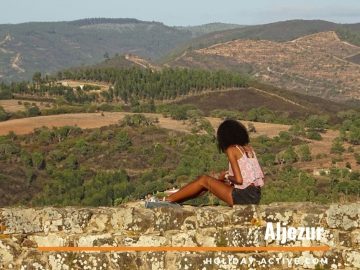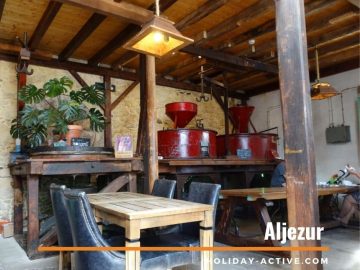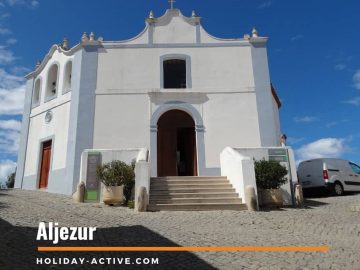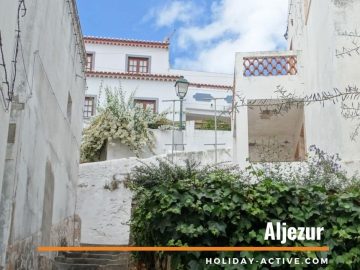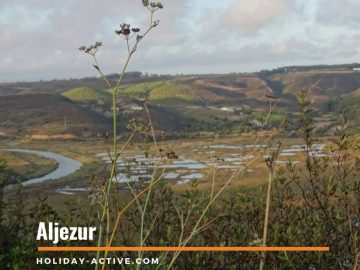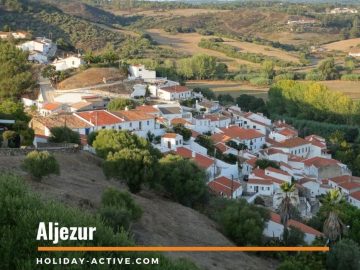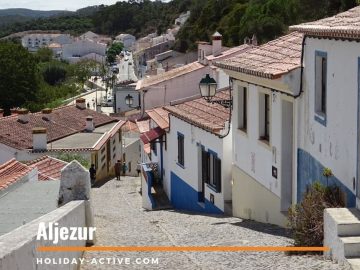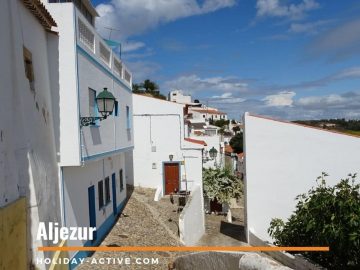Aljezur
Amidst the countryside and the sea. The Coast of Aljezur is a parade of beaches, each one more dazzling than the previous. In the countryside, the sea gives way to marshes and fertile fields ideal for the farming of vegetables, sweet potatoes and peanuts.
For centuries agriculture has been the main economic activity of Aljezur. The products were then transported via the Aljezur river, which has long dried up. Now it’s up to lorries
After the 1755 earthquake that destroyed much of the village, the Bishop of the Algarve, D. Francisco Gomes de Avelar, designed a new urban agglomeration in front of the old one town called Igreja Nova (New church)
What to visit in Aljezur
Castle of Aljezur
Built in the 10th century, during the Arab period it was conquered in 1240, in the reign of D. Afonso III by D. Paio Peres Correa, Master of the Order of Santiago.
Very damaged by the 1755 earthquake, it is identified by two towers, one round and the other square that offer a breathtaking view over the river and Igreja Nova.
The taking of the Castle of Aljezur
Before investing against the Castle of Aljezur D. Paio Peres Correa sent scouts to reconnoitre the place. They found a beautiful Moorish girl, by the name of Maria Aires, who dropped between conversations and gallantry that every June 24th, the inhabitants of the Castle performed a mystical ritual of bathing, at daybreak, at Amoreira beach.
Consequently, D. Paio drew up his plan of attack. On the night of June 23rd, Portuguese troops hid in the bushes in the valley, waiting for the Moorish tradition to be fulfilled. And so it was, that at the break of the dawn, the moors began to march to the beach, leaving the castle in the care of an old woman and her granddaughter.
Attributing the blowing of the wind to the movement of the bushes detected by her granddaughter, the old woman, thus unprepared, did not even have time to sound the alarm when the Portuguese barged through the castle door.
This was how, the Portuguese, without opposition, took the castle and waited for the return of the Moors, who, surprised, quickly succumbed to the Portuguese sword. The Moors were beheaded on the hill to the south of the Castle, and this place is now called “Degoladouro (=cut throat) ” and their heads are thrown to the north, consequently called “Cabeças (=heads)”
For the beautiful Maria Aires, D Paio built a house for her in a place close to Aljezur that is still called Mareares.
Castelo de Aljezur is one of the seven castles represented in the Portuguese flag. The others, all from the Algarve region are Estômbar, Paderne, Albufeira, Cacela, Sagres and Castro Marim.
Parish Church Nossa Sra da Alva
It gave rise to the new urban centre. From the 18th century, it was consecrated to Nossa Senhora de Alva (Our Lady of Dawn), patron saint of Aljezur.
When taking the Castle of Aljezur at dawn, the knights knelt and thanked God and Our Lady of the Dawn for their victory.
Municipal Museum
Located in the old building of the Paços do Concelho, it has two museum centres (archaeology and ethnography) and a small art gallery for temporary exhibitions.
Church of Mercy
It underwent reconstruction work after the 1755 earthquake. Simple interior with emphasis on the coat of arms painted on the ceiling
Antonian Museum
This museum is installed in a small chapel that was built in the 17th century in honour of Santo António de Lisboa
Crafts
Aljezur still produces baskets and traditional wooden spoons. Not forgotten are the rugs and blankets from Alentejo, produced using ancient patterns, reflecting its Arab influence.
Pottery, though an ancient craft, starts to emerge as part of the Aljezur’s handicrafts. For those who want to mix art with nature, go to Vale das Amoreiras where you will find “Donkeys and Art”. Here you can do a donkey ride and a workshop in Pottery
Rogil
The inhabitants of Rogil say that the best sweet potato comes from their land. What is certain is that every October the Aljezur Sweet Potato Festival takes place here and you can feast on the various delicacies made with this tuber.
If you pass through this village stop at “Pão do Rogil” and see how sweet potatoes go well with almost everything
Beaches around Aljezur
Vale do Homens Beach
A wild beach of incredible beauty and little frequented. With a tempting name (Beach of the Valley of Men), the charm quickly vanishes when you come across the gigantic staircases leading down to the beach. From a distance, it remains wild and majestic with waves of crystal blue caressing the golden sands…, a dream beach
Carreagem Beach
A wild and quiet beach, with little sand, which is identified by its rock formation that at low tide is the delight of children who easily entertain themselves investigating the puddles filled with shrimp, limpets, crabs and other crustaceans.
Beach reached via stairs and with parking.
Amoreira Beach
The Amoreira beach is located at the mouth of the Aljezur stream. A beach of rare beauty that connects a river beach with an extensive sea beach, of easy access.
Protected by black schist cliffs to the north and embellished by the native flora of the valley to the south, this beach, due to its uniqueness, will not leave you indifferent
Amoreira Beach | River
On the north bank of the Aljezur stream, which flows into the beach of Amoreira, a wide dune field develops and drops into crystal blue waters, forming during high tide, a lake of paradisiacal blue waters, although with a strong current.
Upstream, the dune valley gives way to a marshland habitat, rich in biodiversity where you can find otters, the odd grey heron or the elusive kingfisher
Monte Clérigo Beach
An extensive beach surrounded by dunes. A vast sandy beach to the north and a rocky platform to the south, which forms during at low tide puddles full of marine organisms. A delight for the youngest who entertain themselves there for hours on end
Easy access
Arrifana Beach
Protected by high cliffs of shale, it forms a small cove, reason why this beach is less beaten by the wind and strong waves.
It is much sought after by surfers, bodyboarders and scuba divers
South of the beach, the huge vertical rock is the Pedra da Agulha (needle rock), an icon of the southwest coast.
North of the beach, at the Ponta da Atalaia – said by local by fishermen to have the best barnacles, there are vestiges of the largest Muslim Ribat in the Iberian Peninsula, a fortress convent of great archaeological value
Access to Praia da Arrifana is via a ramp or through a wooden staircase
Bordeira beach
Bordeira Beach is an extensive 3km long beach makes it one of the longest beaches in the municipality of Aljezur
A very popular beach for nautical sports with special emphasis on Kitesurf due to the winds from the north to the northwest, almost always onshore
Amado Beach
Praia do Amado is the southernmost beach in the municipality of Aljezur and located close to Carrapateira village.
Perhaps one of the most popular beaches for surfing due to the dominant waves and winds. Of great beauty with an extensive beach and high cliffs that enter into the sea.
To the north, you will find the Pontal da Carrapateira, a rocky platform of high environmental value.
Easy access and with beach supports
Cardoama
West of Vila do Bispo. A wide stretch of beach that at low tide merges with Castelejo and Barriga forming an immense extension of an unspoiled wild beach.
An uncrowded beach mostly sought after by surfers
Where to stay in Aljezur? Our Suggestion
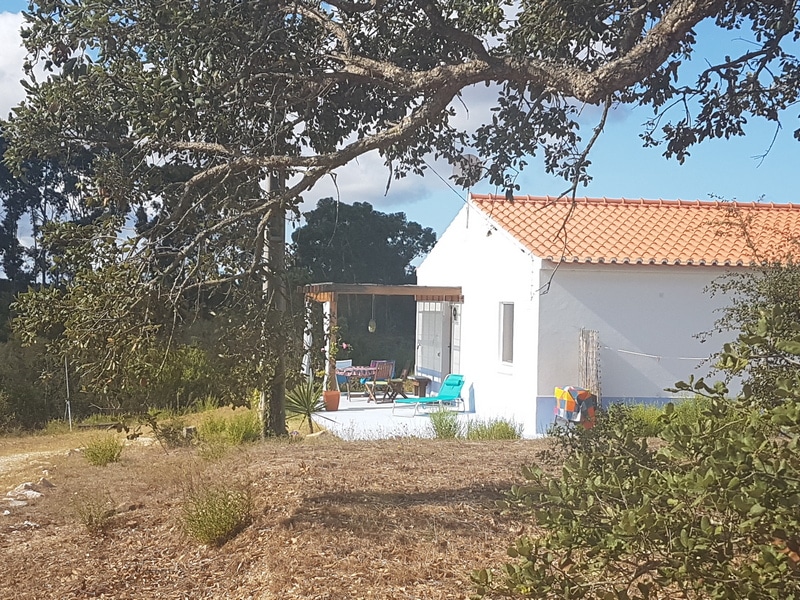
Monte da Xara
A rural house surrounded by nature offering tranquillity and a relaxing stay. The terrace lends itself to al fresco meals and comes with a barbecue. It is a one-bedroom home though the living room with a sofa bed can accommodate 2 more.
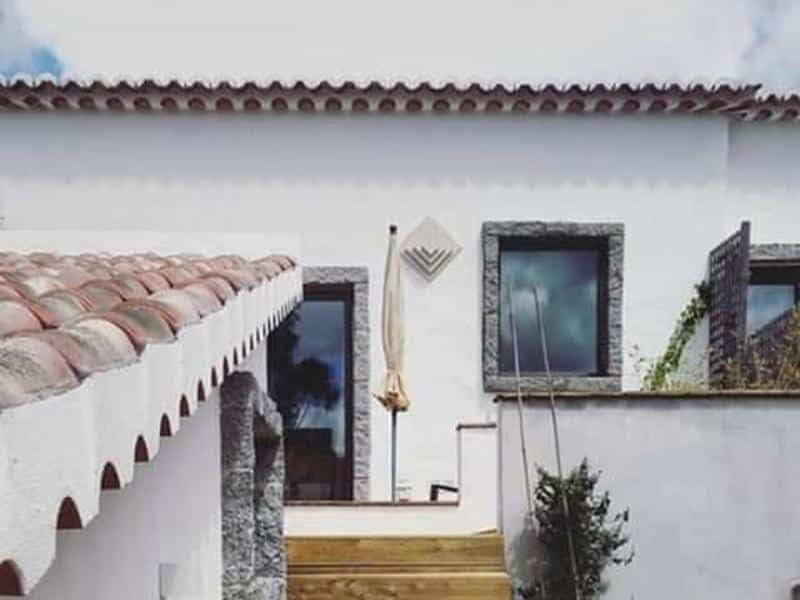
Herdade Quinta Natura Turismo Rural
With only 4 suites, it for an uncrowded and a more familiar environment. The suites are modern with comfortable lines and open onto a private terrace. It also offers a shared kitchen, a dining room with a fireplace and swimming pool and several nooks to simply relax. A river and hiking trails cross the 7.7-hectare property.
Does not accept pets
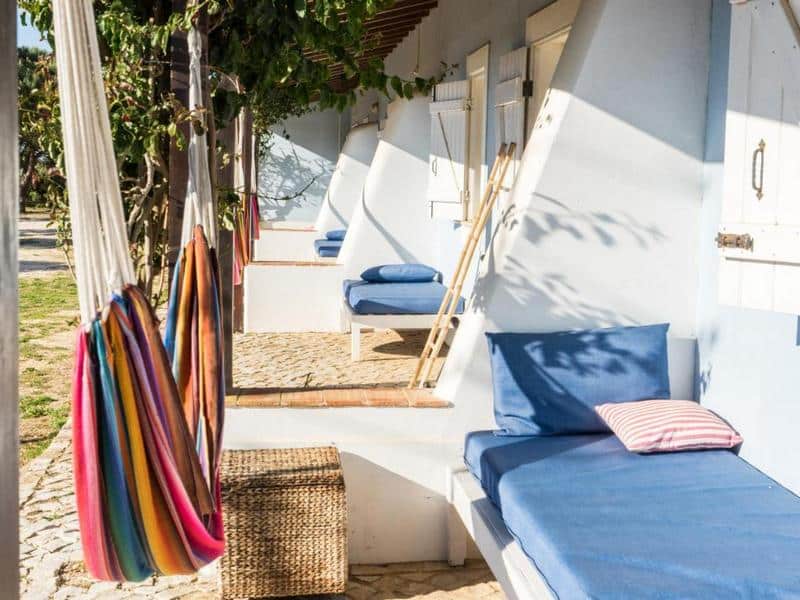
Monte Velho Retreat Centre
You will find this refuge between the sea and the mountains with a relaxing atmosphere and close to the best beaches in the Costa Vicentina. The suites are spacious, with simple, ethnic lines and access to a small terrace with a sun lounger and hammock—a place to disconnect, meditate, refresh and watch the sunset.

 English
English

